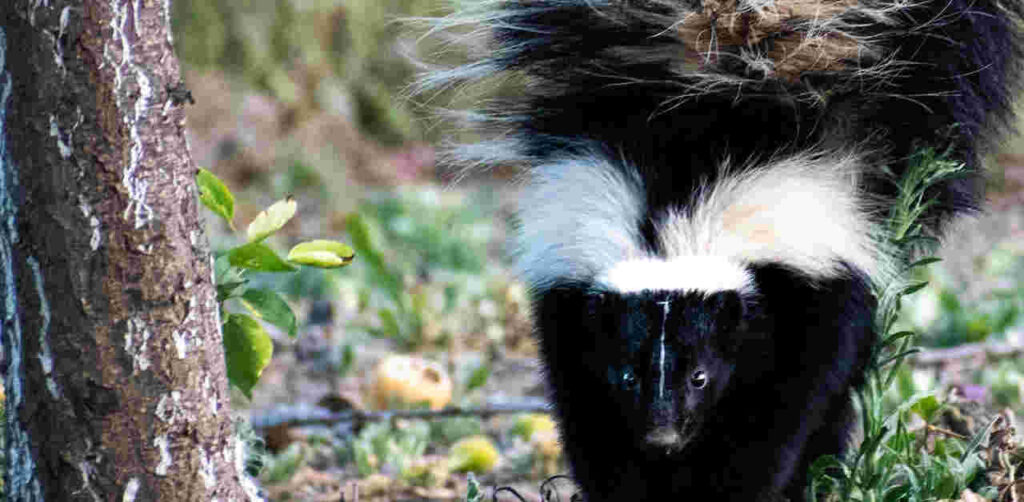Published by: Almanac
Hey—What’s that smell? If you think you’ve got a skunk hanging around your yard, it’s time to act! Here’s how to identify skunks and deter them from your yard and garden.
What Are Skunks?
Skunks are nocturnal animals that are naturally mild-mannered and non-aggressive; they prefer small animals and insects for dinner instead of your garden. They occasionally visit gardens, and if they do, it may be because corn or other plants are close to the ground.
The skunk claims homesteading rights from coast to coast. Distributed across the country are 4 species of skunks, including the striped skunk (Mephitis mephitis) and the spotted skunk (Spilogale putorius). The common striped skunk lives mostly in sparse forests and fields.
Skunks can be very nice to have around because they dig up and feed on the larvae of cutworms, Japanese beetles, hornworms, and other crop-destroying insect life. However, skunks are not only partial to insects; they will eat leaves, buds, grasses, grains, garbage, any fruit or berries within reach, and even small game. They also may disturb your plants while digging for these grubs. This is what can make them a bit of a nuisance to gardeners.
Although their nocturnal wanderings around our fields and gardens, lawns, and flower beds cause us occasional inconvenience and uneasiness, these are minor faults that can be readily overlooked by the time the Harvest Moon begins to shine. It is then that the skunk’s appetite for the pests that plague our gardens helps make it possible for that Moon to glow over a cornucopia brimming with plenty.
How to Keep Skunks Away
- Spray a mixture of castor oil and dish-washing detergent diluted in water. Skunks find the smell offensive. Spray the area at night when the skunk is away foraging.
- Probably the best skunk repellent is light. Skunks are nocturnal and their eyes are very light-sensitive. A bright light or a motion sensor flood light will scare skunks away.
- Most animals, including skunks, dislike the smell of citrus fruits. Place orange or lemon peels around the yard as a natural skunk repellent.
- Predator urine (dogs, coyotes) can be used to repel a skunk. These are commercially sold in garden centers. (Note: Use a responsible source for predator urine to make sure that the animals are treated humanely and the brand complies with state and federal regulations.)
- Many readers have found success placing ammonia-soaked rags around the yard, however, these need to be replaced often.
- If the skunks are in a smaller garden patch, put bars of strong-smelling soap or a room deodorizer near your garden. Ironically, skunks hate strong scents.
If nothing works, there are humane ways for professionals to trap raccoons and skunks and transport them elsewhere. Often, skunk removal by trapping is the only answer, and there just isn’t a lot you can do if it is a skunk. However, be aware that many species of wildlife do not survive when placed in a new territory, and it may not even be legal to trap and relocate wild animals in your area.
